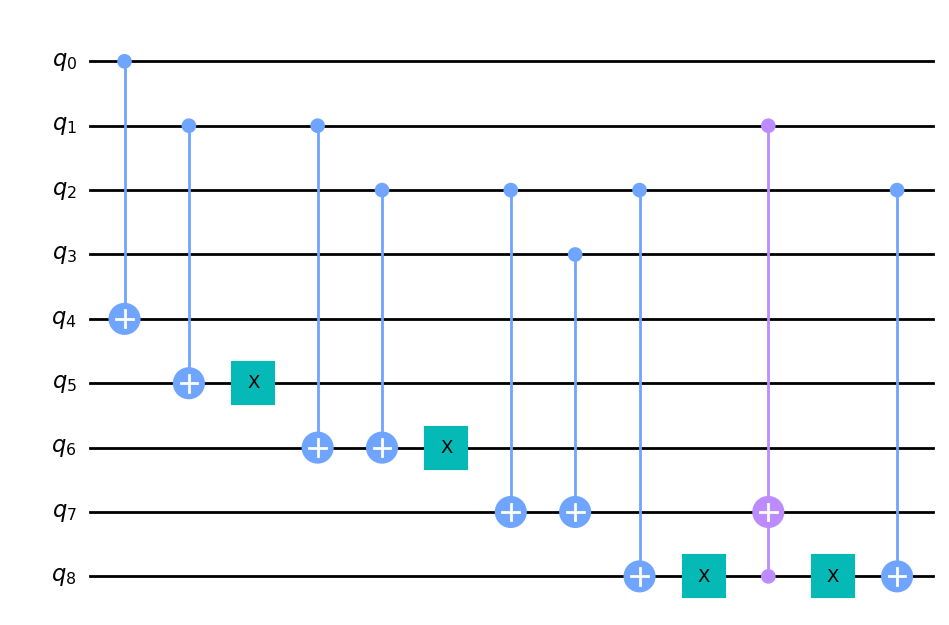Parameters
Qlasskit allow to create qlassf function with parameters. Those parameters are not free variables of the final circuit, and need to be bound before compilation.
In the next example we define test with a parameter a; after binding the parameter a to True, the final function expression will be b.
from qlasskit import qlassf, Parameter
@qlassf
def test(a: Parameter[bool], b: bool) -> bool:
return a and b
qf = test.bind(a=True)
qf.expressions
[(_ret, b)]
Parameterizable qlassf also supports custom types, and complex types like Qlist and Qtuple.
from qlasskit import Qlist, Qint, Qint4
@qlassf
def test(a: Parameter[Qlist[Qint[2], 4]], b: Qint[4]) -> Qint[4]:
s = Qint4(0)
for n in a:
s += n
return s + b
qf = test.bind(a=[2, 1, 0, 3])
qf.expressions
[(_ret.0, b.0),
(_ret.1, ~b.1),
(_ret.2, ~(b.1 ^ b.2)),
(_ret.3, b.2 ^ b.3 ^ (b.1 & ~b.2))]
qf.circuit().export().draw("mpl")
